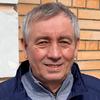The security forces are storming the apartment of believers. Moscow (November 2020). Photo source: Investigative Committee of the Russian Federation
The security forces are storming the apartment of believers. Moscow (November 2020). Photo source: Investigative Committee of the Russian Federation
Jehovah's Witnesses being searched in Moscow. How will these affect European foreign ministers?
MoscowOn November 24, 2020, at least ten searches of believers took place in Moscow. Among the 4 detainees, 65-year-old Ivan Tchaikovsky, who is the applicant in the case Jehovah's Witnesses in Moscow v. Russia. In 2010, the ECHR obliged Russia to rehabilitate the community, but now the ECHR ruling is considered to be unimplemented and has been taken under the control of the Committee of Ministers of the Council of Europe.
"We have confirmed information about ten searches in the apartments of believers in the north-east of Moscow, which took place during November 24," says Yaroslav Sivulskiy of the European Association of Jehovah's Witnesses. "No reliable data on searches in other regions of Russia have been received."
According to preliminary information four believers were left for the night in the detention center: Ivan Tchaikovsky, 65, Sergey Shatalov, 51, Yuriy Chernyshev, 57, Vitaliy Komarov, 44. Searches were conducted in their apartments. Tchaikovsky was detained at his summer house in Tula region. Among the investigators was Valeriya Bashaeva from the Department for Investigation of Special Cases (crimes against the person and public safety).
Ivan Tchaikovsky was an elder in the Moscow Jehovah's Witnesses community when it was dissolved by Golovinsky court in March 2004. Disseminated in the media information about the detainees' association with any centralized or local Jehovah's Witnesses organization is not true. All these organizations ceased to exist in 2017. Since then, believers living in Russia have enjoyed the constitutional right to freely practice their religion without establishing any entity.
Ivan Tchaikovsky is one of Jehovah's Witnesses since 1977. Between 1998 and 2004, he had to defend his faith, as well as the Jehovah's Witnesses community registered in Moscow, against false accusations in the Golovinsky court, in a civil trial. In 2001, that court ruled in favor of Jehovah's Witnesses, but in 2004, under pressure from Moscow City Court, the community was liquidated.
"Later, in 2010, a convincing victory was won in Strasbourg," says Yaroslav Sivulskiy, "Russian authorities paid the believers, through Ivan Tchaikovsky, a large monetary compensation. Now, however, Ivan Tchaikovsky is detained in a criminal case, and his house was searched. It is not surprising that the Committee of Ministers has taken under its special control the implementation of this ECHR decision."
The Committee, composed of the Ministers of Foreign Affairs of the Council of Europe, is an international body that controls how countries implement the ECHR decisions. On October 1, 2020, this Committee issued a decision in which it was not the first time that the Russian Federation had failed to comply with the final decision in the case Jehovah's Witnesses in Moscow v. Russia. The Committee of Ministers pointed out that the decision of the Supreme Court in 2017 on Jehovah's Witnesses nullified the previous progress in this case, it creates a legal basis for the repetition of violations that had previously been assessed and found illegal by the European Court. The Committee of Ministers expressed serious concern about the imposition of a ban on Jehovah's Witnesses, who are a well-known religion and according to the ECHR case law are entitled to practice their religion.
According to paragraph 4 of Article 46 of the Convention for the Protection of Human Rights and Fundamental Freedoms, such repeated failure to comply with the final decisions of the ECHR gives the Committee of Ministers the right to raise before the ECHR the issue of Russia's violation of its obligations under the Council of Europe.
Many Russian and international organizations call on Russia to stop the religious persecution of Jehovah's Witnesses.
](/news/2020/11/8/image_hu_bc1594b0edfeffb9.jpg)




